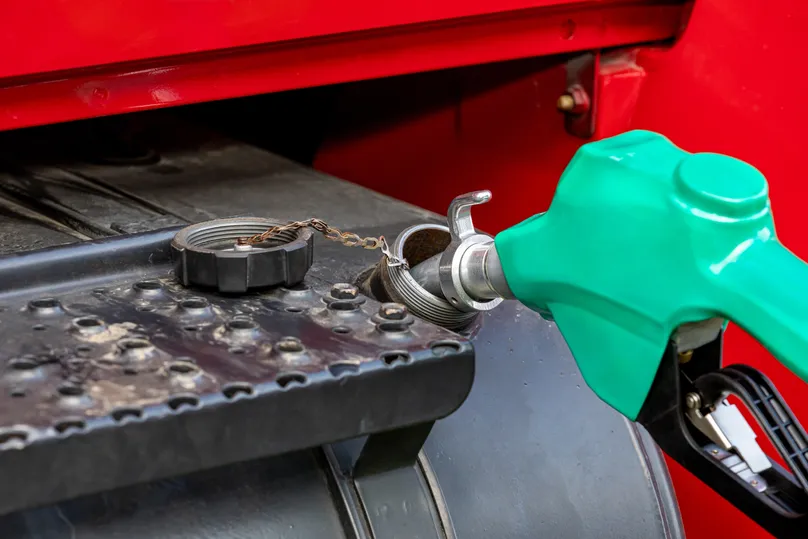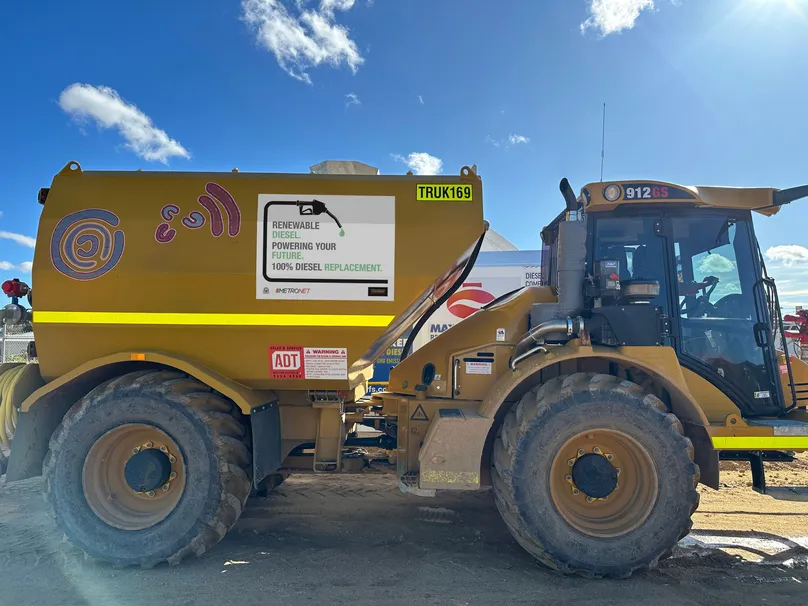Renewable diesel
Renewable diesel is produced through the hydro treatment of vegetable oils, animal fats, or used cooking oils, resulting in a sulphur-free, aromatics-free, and paraffinic hydrocarbon fuel with a high cetane number. This high cetane number, typically between 70-90, ensures better combustion efficiency and reduces engine knocking.
Western Australian farmer are large producers and exporters of feedstock used in biofuel production overseas, which presents an opportunity to utilise this feedstock domestically for the production of renewable diesel.
How is it processed?
There are several conversion technologies either available or under development in Western Ausralia for producing renewable diesel. These include:
- traditional hydrotreating
- high-temperature or fast pyrolysis
- enzymatic hydrolysis and fermentation
Currently, Australia lacks direct support for biofuel, which limites large-scale renewable diesel production.
Environmental, health and safety
Renewable diesel is non-toxic, biodegradable, less flammable, and has a low hazard rating.However, safety concerns related to its production(e.g.often involves high temperatures), as well as its handling, transport, and storage, must be properly managed to minimise the risk of burns, fires and explosions.
Personal protective equipment should be worn when handling renewable diesel, and proper safety protocols and training should be implemented to mitigate risks during production, handling, transportation and storage.
Applications
Renewable diesel is being utilised across various sectors in Australia, leveraging its compatibility with existing diesel engines and infrastructure. Currently, research is underway in Western Australia to explore the potential of hydrotreated vegetable oil (HVO) as a sustainable alternative to traditional diesel in construction activities.
The HVO trial includes various construction machinery and vehicles.Additionally,Future Energy Australia, a joint venture between Frontier Impact Group and Carnarvon Energy plans to invest $1.5billion to build and operate 10 additional biorefineries across Western Australia.
Specifications
Australian producers, for both domestic use and exports, adhere to relevant global standards to ensure the proper performance and quality of renewable diesel products.
Benefits and challenges
Current available research shows that renewable diesel enables significant reduction in CO2 emissions compared to conventional fossil diesel. The sulfur-free nature of renewable diesel also results in lower particulate emissions, which is beneficial for air quality and public health.
While Australia’s biofuel industry is still in its early stages compared to regions like Europe and North America, the Australian government has implemented several initiatives to support the development and adoption of renewable fuels and to expand the nation’s renewable fuel production capacity.
Previous use in Western Australia
In Australia, despite ample feedstock, renewable diesel production and consumption is low. There are five large-scale advanced biofuel initiatives currently in development pipeline in Western Australia, including:
- Cargill Australia's Kwinana canola-crushing plant
- BP's Kwinana Energy Hub
- FutureEnergy Australia
- Australis Biofuel project, and
- The Wheatbelt Connect Initiative

References
- BHP 2023, BHP trials renewable fuel at Yandi, Viewed 14th October 2024, <https://www.bhp.com/news/media-centre/releases/2023/02/bhp-trials-renewable-fuel-at-yandi>.
- Aatola, H, Larmi, M & Sarjovaara, T 2009, Hydrotreated Vegetable Oil (HVO) as a Renewable Diesel Fuel: Trade-off between NOx, Particulate Emission, and Fuel Consumption of a Heavy Duty Engine. SAE International Journal of Engines, 2008. 1(1): p. 1251-1262.
- Fronter Impact Group 2022, $2m Grant Assists Australian-First Commercial Renewable Diesel Biorefinery, Viewed 14th October 2024, <https://www.frontierimpact.com.au/single-post/2m-grant-assists-australian-first-commercial-renewable-diesel-biorefinery>.
- Burggraaf, W, and Wilkins, A 2008, The impact of biofuel production on the Western Australian livestock industry, Department of Primary Industries and Regional Development, WA, Perth. Bulletin 4731.
- GHD, Clean Energy Finance Corporation (CEFC) & Australian Renewable Energy Agency (ARENA) 2019, Biofuels and transport: An Australian opportunity, viewed 9 October 2024, <https://arena.gov.au/assets/2019/11/biofuels-and-transport-an-australian-opportunity.pdf>.
METRONET trials green fuel for heavy machinery
